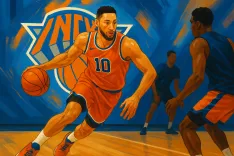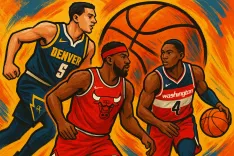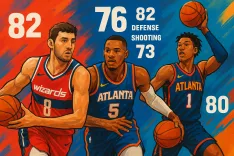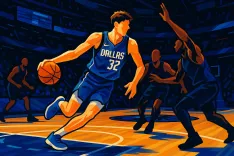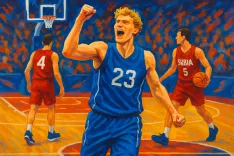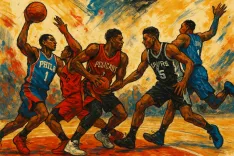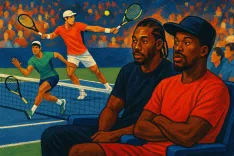2025 NBA Awards: Winners, Losers, and Financial Implications
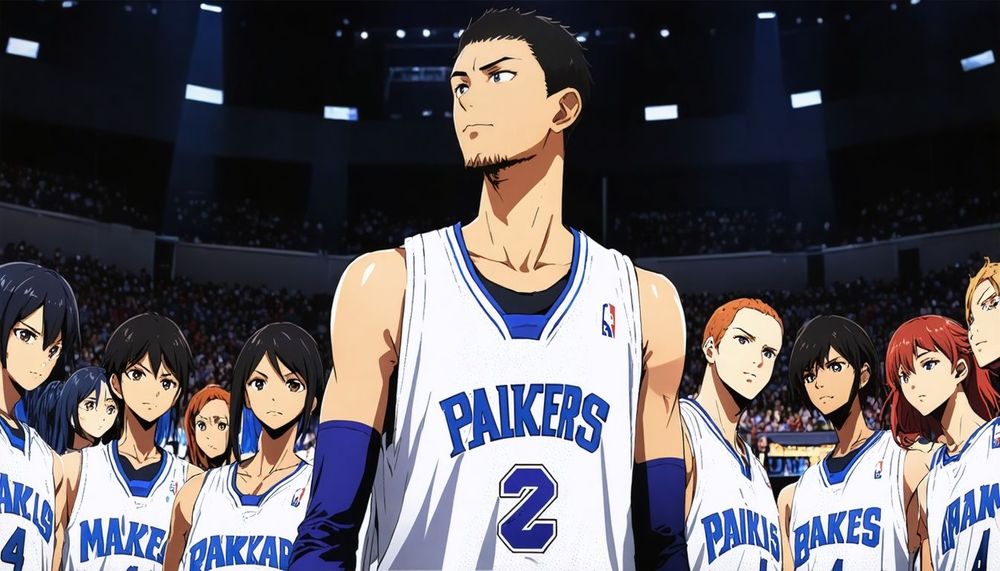
Following the announcement of the NBA's All-NBA and All-Defensive teams, the awards season for 2025 has officially concluded. The distinction between winners, those who took home awards, and losers, those who did not, is evident. However, the implications of these awards extend beyond just individual accolades. The financial futures of several players and teams have been influenced by these announcements, which has noteworthy repercussions moving forward.
The All-Rookie First Team includes Stephon Castle, Zaccharie Risacher, Jaylen Wells, Zach Edey, and Alex Sarr, while the second team features Matas Buzelis, Bub Carrington, Donovan Clingan, Kel'el Ware, and Yves Missi. The All-Defense First Team comprises Evan Mobley, Draymond Green, Dyson Daniels, Lu Dort, and Amen Thompson. The Second Team consists of Toumani Camara, Rudy Gobert, Jaren Jackson Jr., Jalen Williams, and Ivica Zubac. The All-NBA First Team features Shai Gilgeous-Alexander, Nikola Jokic, Giannis Antetokounmpo, Jayson Tatum, and Donovan Mitchell, while the Second and Third Teams include Jalen Brunson, Stephen Curry, Anthony Edwards, LeBron James, Evan Mobley, Cade Cunningham, Tyrese Haliburton, James Harden, Karl-Anthony Towns, and Jalen Williams, respectively.
Debates surrounding the NBA Most Valuable Player (MVP) award often boil down to one question: Who was the best player on the best team? While this perspective has merit, it does not encompass the depth of the award's intricacies. Shai Gilgeous-Alexander's case for MVP transcends his team's success, as the Oklahoma City Thunder broke records for single-season point differential, double-digit wins, and 15-point victories. Gilgeous-Alexander led the league in estimated plus-minus and total points, showcasing a strong candidacy that challenges traditional narratives. Yet, discussions often pit him against Nikola Jokic, framed as the best player versus the most valuable. The subjective nature of 'value' in the MVP dialogue leaves much room for interpretation, requiring a more profound examination than it often receives.
The MVP discourse this season is indicative of a broader trend within NBA award conversations, where multiple players present strong arguments for various honors. Evan Mobley, awarded the Defensive Player of the Year, is another example where the results provoke thoughtful debate without a clear right answer. Despite winning accolades, Mobley finished lower in defensive estimated plus-minus, raising questions about how metrics are weighed in award discussions. Different priorities may have led to variations in outcomes for awards like Clutch Player of the Year and Most Improved Player, emphasizing the rich talent available in the league.
This NBA awards season also has significant financial ramifications. Under the current collective bargaining agreement, individual honors are directly tied to player compensation. For instance, Evan Mobley's Defensive Player of the Year award elevates him to a 30% salary cap figure, potentially raising his earnings in the coming years substantially. If not for the award, he would have been classified under the 25% cap figure, impacting the Cleveland Cavaliers' budget and team-building strategy. The Cavaliers now face financial challenges, as Mobley will command a higher salary that may limit their flexibility in building a competitive roster.
Cade Cunningham similarly benefits from his recognition as a Third Team All-NBA member, positioning him for a substantial contract amid the Detroit Pistons' evolving roster landscape. The implications of award recognition extend beyond individual players, influencing overall team dynamics and strategies. Several players, including Jaren Jackson Jr. and Trae Young, potentially missed lucrative contracts by not making the All-NBA teams, illustrating the ongoing battle for financial reward amid competitive excellence.
As the NBA continues to evolve, the discourse surrounding awards and their associated financial impacts highlights the league's depth and talent. The conversation around MVP and individual honors must shift to include comprehensive analyses that reflect the complexity of each player's contributions. The forthcoming years promise to present further debates, as the league's stars redefine both gameplay and compensation expectations, leading the way into a new era of individual contracts.
